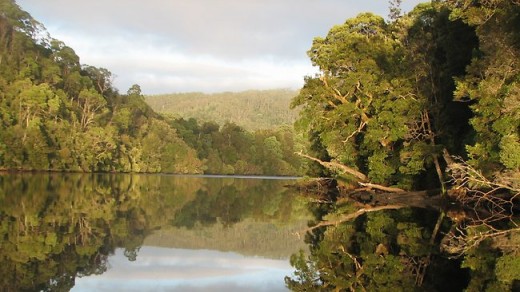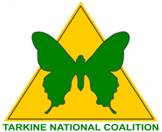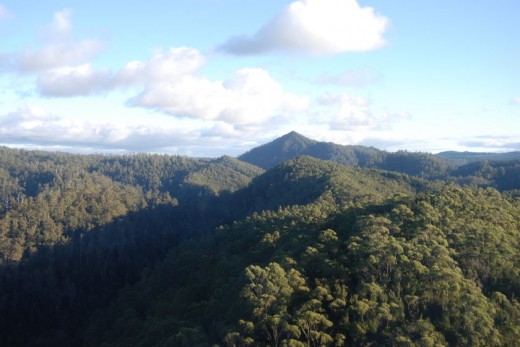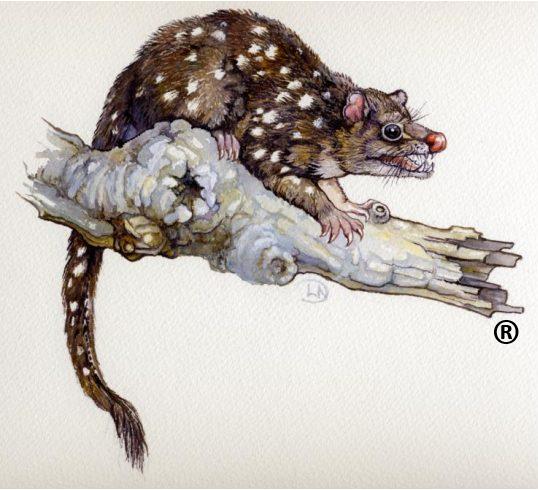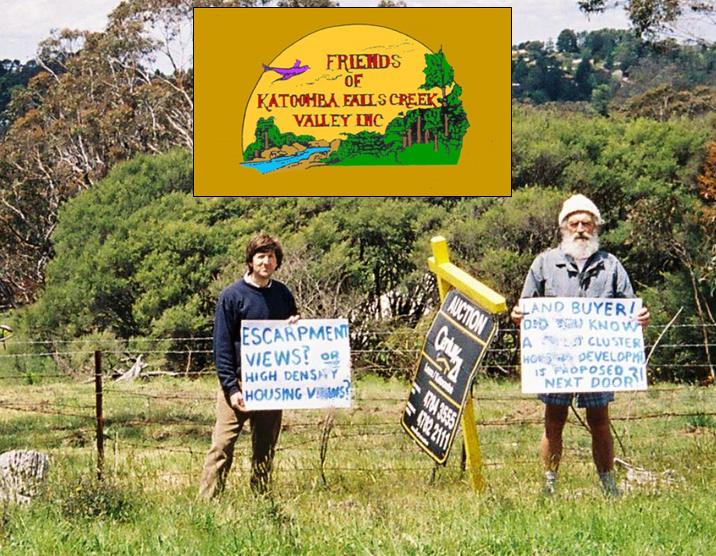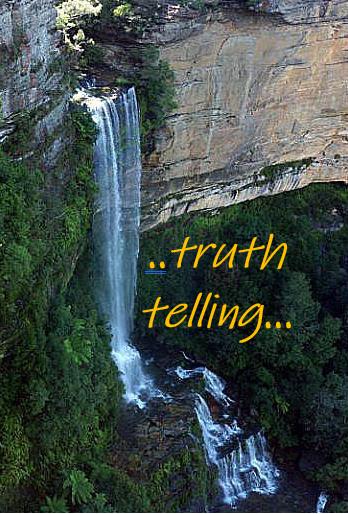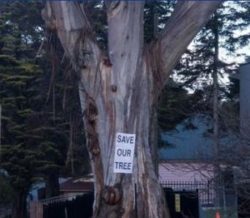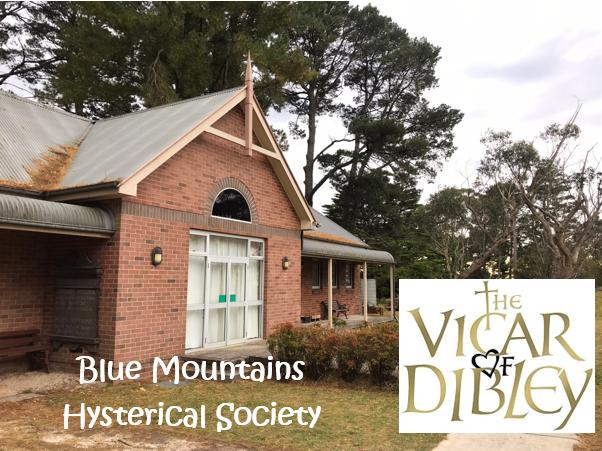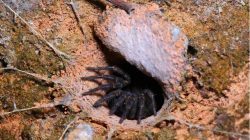Tarkine’s above ground values are for eternity
Sunday, December 4th, 2011“..this awe-inspiring, largely unknown part of Australia – a wilderness that has survived, virtually untouched, for over 65 million years from its Gondwana heritage, but which is today under increasing threat from Man.”
.
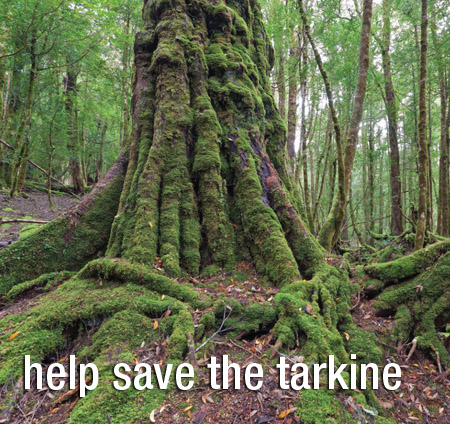 The Tarkine’s mystical beauty of an ancient Giant Myrtle (Nothofagus cunninghammii)
The Tarkine’s mystical beauty of an ancient Giant Myrtle (Nothofagus cunninghammii)
.
Urgent press releases from the local champions trying to save The Tarkine:
.
.
‘New threats to the Tarkine’
. (Source: The Wilderness Society, Tasmania, ^http://www.wilderness.org.au/regions/tasmania/new-threats-to-the-tarkine)
We all know the Tarkine is an environmental jewel – but when mining companies look at this special place, they see the glint of valuable metals instead. Gold, iron, tin, zinc, lead, copper – you name it and chances are it can be found in the mineral-rich bedrock beneath the Tarkine.
With Australia in the grip of an extraction bonanza, and Chinese demand for base metals at an all time high, the pressure to open up the Tarkine to mining is building. So far, 12 mines have been proposed for the Tarkine over the next two years, along with 56 licences for mineral exploration in the area. If even a fraction of these mines go ahead, this wild land of rugged coastline, pristine rivers and forested hills could be compromised – criss-crossed with exploration tracks and roads and dotted with waste dumps, pits and trenches.
The Tarkine is of huge environmental significance. It is one of the largest remaining tracts of temperate rainforest on earth, and home to a huge variety of species including:
- Tasmanian devils
- Tasmanian wedge- tailed eagles
- Spotted-tailed quolls
- Southern bell frogs
- White goshawks
- Giant freshwater lobster
- Eastern barred bandicoots
- Orange-bellied parrots
- and the Huon pine.
.
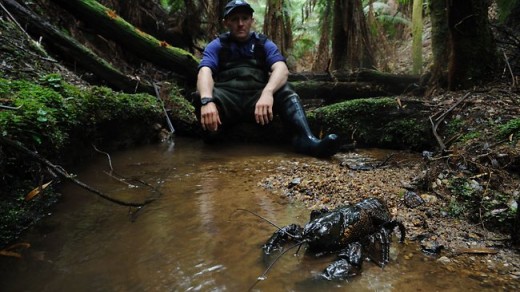 Tasmania’s Giant Freshwater Lobster (Astacopsis gouldi)
It is found only in northern Tasmanian streams (particularly in The Tarkine) and rivers flowing into Bass Strait.
It is found nowhere else in the world, yet is threatened by illegal fishing, land clearing and forestry.
(Source: Matthew Denholm, Tasmania Correspondent, The Australian, 20111109)
Tasmania’s Giant Freshwater Lobster (Astacopsis gouldi)
It is found only in northern Tasmanian streams (particularly in The Tarkine) and rivers flowing into Bass Strait.
It is found nowhere else in the world, yet is threatened by illegal fishing, land clearing and forestry.
(Source: Matthew Denholm, Tasmania Correspondent, The Australian, 20111109)
.
Environmental jewel
The Tarkine’s wild, rugged coastline – there’s no land between this point and the South American coast – boasts some of the cleanest air in the world. Because of these values (above ground), the Tarkine has long been the subject of a community-driven National Park proposal. In addition, in 2010, a report by the Australian Heritage Commission recommended that 430,000 hectares of the Tarkine be granted National Heritage status.
But Environment Minister Tony Burke has refused to implement this recommendation, claiming a need for further assessment and consultation. For decades, environmentalists have been working to protect the Tarkine. Some campaigns have been lost – like the road to nowhere in the mid 1990s – others have been won. Now, with the Tasmanian Forest Agreement progressing, it looks like the area may at last be protected from logging.
.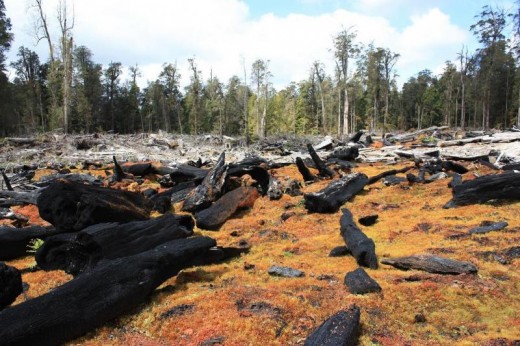 Logging and ‘scorched earthing’ of old-growth rainforest in The Tarkine
(October 2009, Environment Tasmania)
Logging and ‘scorched earthing’ of old-growth rainforest in The Tarkine
(October 2009, Environment Tasmania)
.
But mining remains as a threat in this pristine region.
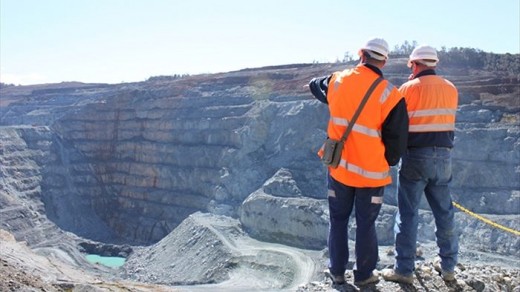 Savage River Open Cut Mine in the north of The Tarkine
Savage River Open Cut Mine in the north of The Tarkine
.
It’s not hard to predict what will happen over the coming months: mining companies will pressure the Tasmanian Government to allow these mines to go ahead, dressing their arguments up in the usual disguise by claiming that mining is essential for jobs.
But putting industry ahead of the environment is an approach that has failed for decades and a new approach is needed. The Wilderness Society is involved with a coalition of groups calling for the creation of a Tarkine National Park.
With your support, the Wilderness Society will be standing up for an Australia that values the Tarkine not for the metals that can be extracted by destroying it, but for the precious environmental qualities that it has when left intact.
.
‘Burke’s broken promise misleads the public’
.
(by Scott Jordan, Campaign Coordinator, Tarkine National Coalition, 20111202, Tasmanian Times online newspaper, ^http://tasmaniantimes.com/index.php?/weblog/article/burkes-broken-promise-misleads-the-public/)‘Tarkine National Coalition has reacted angrily to the latest chapter in Environment Minister Tony Burke’s campaign of misinformation regarding the Tarkine National Heritage assessment. The Minister made comment on ABC Mornings (936 Tasmania) that he did not have in his possession any report from the Australian Heritage Council supporting a permanent listing of the Tarkine.
This is at odds with our reading of the Australian Heritage Council report from September 2010 which supported the permanent listing of 433,000 hectares it had assessed as having National Heritage Values. Minister Burke has refused to publicly release this report, despite FOI requests from the ABC last year.
“The Minister is clearly failing in his responsibilities here, and is spinning mistruths to try and cover up his complicity in promoting mining in the Tarkine wilderness reserves,” said Tarkine National Coalition spokesperson Scott Jordan.
The Minister received this report two months before allowing the Tarkine’s Emergency National Heritage Listing to lapse. He then sent the AHC back to reassess the area, with a substantial budget cut and no capacity to complete the work before 2013. This will effectively shepherd up to ten new mine proposals through an EPBC process that cannot in the absence of a listing, legally consider impacts on National Heritage Values such as wilderness, rainforest, geological significance (fossil sites and karst systems), aesthetic character, Indigenous or European cultural heritage.
This mirrors the strategy applied by the Minister at the controversial Brighton By-pass in southern Tasmania and at James Price Point in northern WA, where once EPBC assessments were underway, a National Heritage Listing was applied that could have no legal effect on those ongoing assessments.
Independent advice from Andrew Macintosh, Associate Director of the ANU Centre for Climate Law and Policy confirms that the AHC report does in fact refer to a permanent listing, and advises that the AHC’s terms of reference only allow it to report on whether an area has National Heritage Values and prevents it from making ‘qualified’ or ‘preliminary’ findings. The correspondence from Mr Macintoshcan be downloaded below..
“It becomes impossible to have reasonable dealings with a Minister who won’t stick to the rules, and won’t tell the truth”. “The Minister must immediately release the Australian Heritage Council’s Tarkine report from September 2010”.
.
Emergency National Heritage Listing
The TNC and partner groups (WWF, Australian Conservation Foundation, The Wilderness Society, Tasmanian Conservation Trust, Environment Tasmania and North West Environment Centre) resubmitted a Emergency National Heritage Listing nomination last week, triggered by the threats to National Heritage Values of the Mount Lindsay and other mining proposals.
The resubmitting of the Tarkine Road proposal by the Tasmanian Government called into play a promise made by Minister Burke last December that if the Tarkine Road was resubmitted, that he would immediately re-list the Tarkine. The Minister has failed to deliver on this promise.
“The failure to reapply a Tarkine Emergency National Heritage Listing in response to the Tarkine Road referral clearly shows this Minister’s contempt for the responsibilities of his office, and clearly tells us that any promises he makes are worthless”.
“The key difference between this proposal and the former proposal is not the alterations to the route, but the fact that a mining company now needs this route for transporting product to ports”.
.
.
.
‘Burke places money and mines before Tarkine’
.
by Senator Christine Milne, Tasmanian Times online newspaper, ^http://tasmaniantimes.com/index.php?/weblog/article/burkes-broken-promise-misleads-the-public/].
Federal Environment Minister, Tony Burke, must explain why he will allow the assessment of mining proposals to occur in the Tarkine before acting on advice before him to permanently heritage list the region, Australian Greens Deputy Leader, Christine Milne said today.
“Minister Burke today claimed on ABC local radio to have no information leading to the emergency heritage listing of the Tarkine, but failed to mention a report buried in his department recommending the Tarkine be listed.
“The Environment Minister is playing into the hands of mining companies, who are no doubt jubilant of the 2013 deadline given to the Australian Heritage Council to determine whether permanent heritage listing should be put in place.
“By 2013, all ten of the mining proposals will be submitted to the department and any subsequent heritage listing will have no effect on their operations. The wilderness, geological and cultural values of the Tarkine will not be assessed.
“It is like putting on a seatbelt after your car has crashed.
“Minister Burke’s job has moved from a focus on natural and heritage values to one of being solely concerned with bleeding monetary value from the places he is supposed to protect.
“Peter Garrett placed emergency heritage listing on the Tarkine following the state government’s previous attempt at building a road, and now, with a similar application before him, as well as ten mining applications that will be seriously impinged by such a listing, we have Minister Burke reneging on his promise to heritage list the region should another road proposal be made.
“This ongoing, seven year process to determine heritage listing the Tarkine has become an embarrassment to Australia whose governments persistently fail to recognise the value of this natural jewel.
.
“Minister Burke has everything at his disposal for immediately placing the Tarkine on the National Heritage list.
Act now, Minister Burke, before these mines have your name all over them.”
Tasmania as seen by miners – exploitative ‘below-ground’ values.
Selected comments readers of Tasmanian Times:
.
by Barnaby Drake (20111202):
“The key difference between this proposal and the former proposal is not the alterations to the route, but the fact that a mining company now needs this route for transporting product to ports”.
‘Is it not just as I predicted? All infrastructure for these mining companies will be paid for by us. Here the original estimate was for $24 Million as a starters. Expect the real cost to be dramatically understated so that they can get their approval before announcing the usual blow-out! And that’s just the start of it. That also means that the Tourism budget will take the hit, but strangely, Forestry will also be able to us this road as the Tarkine is no longer protected. It will then be discovered by TasPorts that they need to upgrade their port facilities somewhere in the West to benefit the local inhabitants and they require another Sqillion Dollars and of course, create a couple of thousand jobs, etc.
Hallelujah! The economy has been saved. Your pensions are safe. A new mining tax will see us all happy and prosperous and MP’s will be able to have their blocked salary increases paid. A replay of the famous once Gunns proposals.
All we need now is an education bus to train the kiddies for the future. Utopia!’
.
by John Hayward (20111202):
‘The Minister would see his responsibility as being to himself, his party, and to their major political contributors. His apparent dishonesty, or ignorance, is merely a consequence of these priorities.’
.
by Russell Langfield (20111202):
‘Can anyone name a promise Environment Minister Burke has kept, or a decision being made which favoured the environment over business interests?’
.
Salamander (20111202):
‘Burke likes to make out he is a man of the people, and responds when he gets enough signals from the people to act for the environment. Yesterday he was complaining about the hijacking of his twitter account by tweets about the Tarkine – but still he won’t do what the people want. Seems to me we have a puppet whose strings are completely controlled by corporations.’
.
by Pete Godfrey (20111203):
‘There is no money for hospitals, police, mobile phones for police, anything that is good for people, but there is always money available for Forestry and Mining. From what I can recall every mine venture that has received grants from the government has failed. All we ever get back is the privelege of cleaning up the mess and a hole in the ground. Part of the Tarkine have already been destroyed comprehensively by Forestry Tasmania, it is time to protect the rest from both of these rapacious subsidy collectors.’
.
by Pete Godfrey (20111203):
‘Unless you count building a road for Mining and Logging access to the area as a grant. I do.
What will happen is that he industry will start up, then say “oh it is not viable without some subsidies” then we put our hand in the the till and hand over heaps of money. Just like all the other mining ventures on the west coast. The companies accept the money then close the mine down not long after.
You can guarantee that the government will pay in the end.
We will pay for the new “mining and forestry road”
We will upgrade port facilities.
We will pay for road damage and bridge damage. Which is what the original Tarkine loop road proposal was about, it was to rebuild two bridges that have washed away before, the Tayatea bridge being one of them.
We may not hear of incentive grants to attract the miners but you can bet that a certain minister from the west will be handing grants out like lollies.’
.
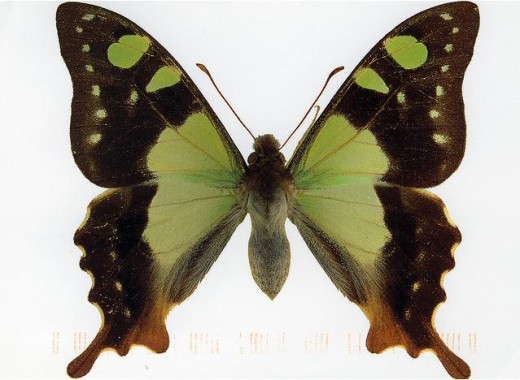 Maclays Swallowtail (Graphium Macleyanum), a native to The Tarkine
© Photo by Marja-Liisa, Helsinki (‘mliisa’s photostream’ on flickr, AU-2100 from Lynette,
^http://www.flickr.com/photos/25816219@N00/1921054368/
Maclays Swallowtail (Graphium Macleyanum), a native to The Tarkine
© Photo by Marja-Liisa, Helsinki (‘mliisa’s photostream’ on flickr, AU-2100 from Lynette,
^http://www.flickr.com/photos/25816219@N00/1921054368/
